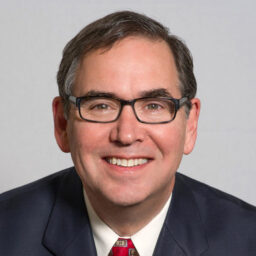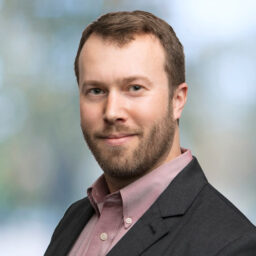
Hertz Foundation Announces 2023 Hertz Fellows
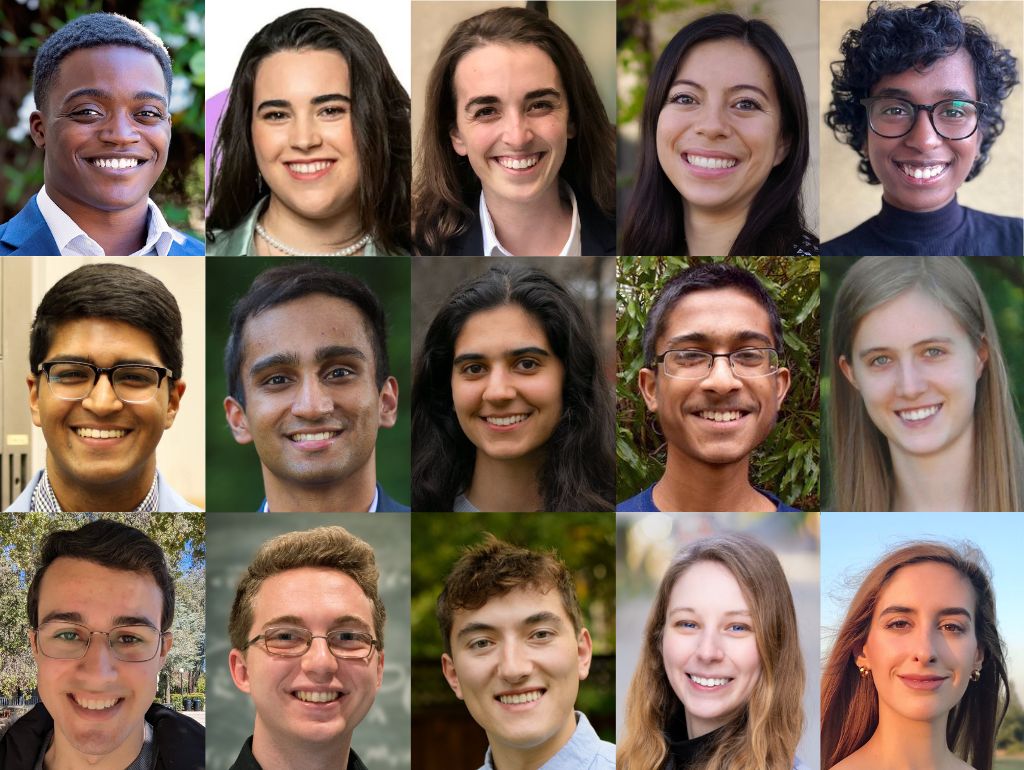
The Fannie and John Hertz Foundation, a nonprofit organization dedicated to empowering the most promising innovators in science and technology, has announced the 2023 Hertz Fellows, 15 remarkable doctoral students in applied science, engineering and mathematics.
By funding their graduate studies for five years, Hertz Fellowships provide each new fellow the freedom to tackle some of the most significant challenges facing our nation and the world today. Their research promises to improve human health, usher in advances in artificial intelligence and quantum technologies that redound to the greater good, yield a deeper understanding of our universe, contribute to our economy, and strengthen our national security. We project such outcomes with confidence based on the collective accomplishments of the more than 1,200 Hertz Fellows whose ranks they are joining.
“There's a unique character to Hertz Fellows — curious, self-aware — they have a fire in their bellies and a desire to share their research,” says Stephen Fantone, chair of the Hertz Foundation Board of Directors and the founder and president of Optikos Corporation. “For over two centuries, incredible achievements have emerged from the values fostered in this country and the synthesis of intellectual minds. The Hertz Foundation today plays an integral part in driving such innovation by enabling the freedom to innovate and helping these extraordinary scientists and engineers realize their potential.”
Hertz Fellows comprise a true, multi-generational community of dedicated scientists, a unique engine for professional development and collaboration. That collaboration has borne significant fruit. Among past recipients are Nobel laureate John Mather, a NASA astrophysicist and project scientist for the James Webb Space Telescope; Kimberly Budil, director of Lawrence Livermore National Laboratory; Nathan Myhrvold, founder and CEO of Intellectual Ventures, founding director of Microsoft Research, and former chief technology officer at Microsoft; Kathleen Fisher, deputy office director for the Defense Advanced Research Projects Agency Information Innovation Office; and neuroscientist Ed Boyden of the Massachusetts Institute of Technology, who is developing optogenetic technologies to understand and treat brain conditions such as Parkinson’s disease and Alzheimer's disease.
The rigorous and proven selection process for fellows — interview-based and unlike any other fellowship’s process — is led by Philip Welkhoff, Hertz Fellow and Hertz board director and director of the malaria program at the Bill & Melinda Gates Foundation. The aim of the Hertz Fellowship selection process: identify doctoral students with the extraordinary creativity necessary to tackle problems others can’t solve.
“A Hertz Fellowship not only provides catalytic support during one’s graduate career; being awarded a fellowship welcomes fellows into a community that can accelerate impact for a lifetime,” says Welkhoff. “The innovation, creativity, deep and connected knowledge, grit and determination, and ambition to make an impact displayed by this cohort stand out and promise great things for the years to come. We are all excited to see the advances they develop over their careers that will drive progress across so many areas of endeavor, resulting in new scientific knowledge, new technologies, and strengthened national security.”
Such a focus on the national interest has been a hallmark of the Hertz Foundation since its founding in 1963. Fellows understand that the support they are granted comes with a responsibility to aid the nation in times of emergency. It is a solely moral commitment on the part of the fellows, yet members of the community state that making such a pledge often shapes and inspires the research they undertake. Will it help people? Will it advance the country? Can it add to our security or economic vitality?
Over the foundation’s 60-year history of awarding fellowships, more than 1,200 Hertz Fellows have established a remarkable track record of accomplishments. Their ranks include two Nobel laureates; recipients of 10 Breakthrough Prizes and three MacArthur Foundation “genius awards”; and winners of the Turing Award, the Fields Medal, the National Medal of Technology, the National Medal of Science, and the Wall Street Journal Technology Innovation Award. In addition, 51 are members of the National Academies of Sciences, Engineering and Medicine, and 36 are fellows of the American Association for the Advancement of Science. Hertz Fellows hold over 3,000 patents, have founded more than 375 companies, and have created hundreds of thousands of science and technology jobs.
Introducing the 2023 Hertz Fellows
Fellows are listed with their graduate university affiliations and fields of interest.
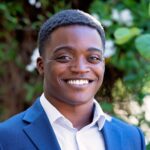
Jeffrey Brown II wants to develop novel computational and biological tools for seeing and controlling biological systems, and create new computational methods to find the hidden principles in the data. He envisions using these first principles to develop a mature landscape for “molecular neural engineering” — tools and techniques to interface with the brain down to the level of single molecules. He is a doctoral student in electrical engineering/computer science at the Massachusetts Institute of Technology and a member of the Synthetic Neurobiology Group led by Professor Ed Boyden (Hertz Fellow). He completed his undergrad at Stanford University with a bachelor’s in philosophy, a master’s in computer science, and a master’s in electrical engineering.
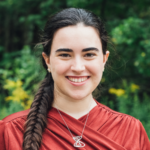
Liyam Chitayat aims to develop fundamental technologies and biological interfaces to enable human enhancement on a physiological and molecular level. At age 12, she began her double major undergraduate programs in chemistry and biology at Tel Aviv University, where she graduated summa cum laude in both majors. She is currently completing her master’s degree in biomedical engineering, where she has aimed to develop novel computational methods for microbiome engineering. She was selected to serve in the bioengineering department at the Israeli Ministry of Defense, Directorate of Defense Research and Innovation, leading the computational biology efforts. She will begin her doctoral program in computational and systems biology at the Massachusetts Institute of Technology in fall 2023.
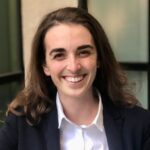
Freja Ekman is interested in engineering novel gene therapies to target rare genetic diseases and using computational genomics to better characterize them. She is currently pursuing her MD-PhD at Stanford University, where she is working with Professor Matthew Porteus to develop CRISPR/Cas9-based gene therapies to target hematopoietic diseases and create new cancer immunotherapies. She received her bachelor’s degree in chemical biology from the University of California, Berkeley, and her master’s degree in translational biomedical research as a Gates Cambridge Scholar at the University of Cambridge.
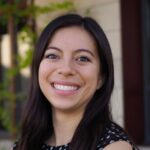
Isabel Orlanes Gallegos is interested in the fairness, explainability and transparency of artificial intelligence systems. As a joint bachelor’s and master’s student at Stanford University majoring in computer science with a focus on artificial intelligence and minoring in education, she works as a research assistant in the Stanford Regulation, Evaluation and Governance Lab (RegLab), where she studies the encoding of race and ethnicity in health care data. She has been awarded two patents and received national computing awards for her work. Outside of her research, Gallegos is passionate about education equity and supporting underrepresented students in science, technology, engineering and math (STEM). She will start a doctoral program in computer science at Stanford University in fall 2023.
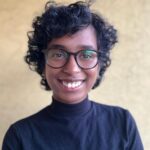
Anjali Gurajapu is interested in leveraging computation for organic synthesis to develop reactions and synthesize complex structures relevant to human health. As advancements in high-throughput technologies enable data collection on larger scales, she looks forward to exploring how data-driven workflows and quantum mechanical calculations can improve the efficiency of reaction optimization while probing the factors that drive divergent reactivity. Gurajapu will graduate from the University of California, Berkeley, in 2023 with bachelor’s degrees in chemistry and data science. She will start a doctoral program in chemistry at the California Institute of Technology in fall 2023.
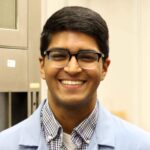
Philip Kocheril seeks to use advanced spectroscopic techniques to characterize the photophysical dynamics of biochemical systems. Kocheril’s twin interests in chemistry and jazz developed early and continued into his undergraduate studies at the University of Illinois at Urbana-Champaign (UIUC). After graduating with a bachelor’s in chemistry and minor in music, Kocheril developed biosensor assays and instrumentation, and studied lipoprotein biophysics as a post-bachelor’s student in the Physical Chemistry and Applied Spectroscopy Group at Los Alamos National Laboratory. He was a Barry M. Goldwater Scholar and the first to receive the Astronaut Scholarship at UIUC. Kocheril is a doctoral student in chemistry at the California Institute of Technology.
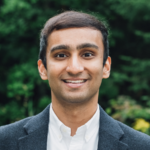
Vaibhav Mohanty works at the intersection of theoretical physics, chemistry and evolutionary biology to develop mutational “traps” to combat the rapid evolution of proteins in infectious pathogens and in cancer. Mohanty received his first PhD in theoretical physics from the University of Oxford, where he studied as a Marshall Scholar. In 2019, Mohanty received a master’s degree in chemistry and a bachelor’s degree summa cum laude in chemistry and physics with a minor in music from Harvard University, where he was awarded a Barry M. Goldwater Scholarship. He is now pursuing physician-scientist training in the Harvard University-Massachusetts Institute of Technology MD-PhD Program, with his second PhD in chemistry.
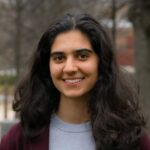
Adele Payman studies fundamental plasma physics. She is particularly interested in how advances in basic plasma science from fusion research and laboratory astrophysics can be applied toward innovative propulsion concepts for deep space exploration. As an aerospace engineering major at Georgia Tech, Payman also nurtured her love of physics, taking as many physics classes as she could fit into her schedule. In her most recent internship at the NASA Jet Propulsion Laboratory, she co-invented a compact, heaterless hollow cathode for hall thrusters that could supply 10 times more power than previous comparable designs. She will begin a doctoral program in applied physics at the California Institute of Technology in fall 2023.
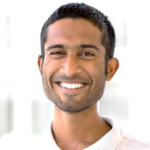
Sahil Pontula is an applied physicist who aims to harness light-matter interactions in novel ways. In doing so, he is working to enable discoveries in fundamental physics leading to next-generation technologies in energy, sensing and communication. He graduated in three years from the Massachusetts Institute of Technology (MIT) with bachelor’s degrees in physics and electrical engineering. Pontula aims to use nonlinear and quantum optics to generate reliable sources of macroscopic quantum states of light, which could revolutionize existing quantum information and sensing platforms. He will begin a doctoral program in electrical engineering and computer science at MIT in fall 2023.
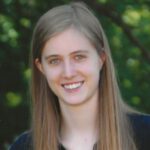
Anna Soper is an experimental physicist designing unconventional optical cavities for the development of scalable cold atom-based quantum systems with strong atom-light interactions. Born and raised in Seattle, she received her bachelor’s degree in 2022 in mathematics and physics from Harvey Mudd College, where she was president of Harvey Mudd’s Women in Physics group. Currently a doctoral student in applied physics at Stanford University, Soper loves hiking and skiing, and is also a classically trained musician playing viola in Stanford’s orchestra and chamber ensembles.
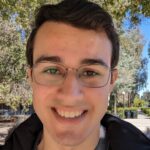
Benjamin Spector’s research focuses on creating new methods and architectures for robust and transparent artificial intelligence while enabling adoption by a growing scientific and engineering community. As a doctoral student in computer science at Stanford University, his work straddles systems and machine learning. As an undergraduate, he published machine learning research at conferences, including the Very Large Data Base Conference and the Conference on Neural Information Processing Systems, and presented work on computational plasma physics at an annual meeting of the American Physical Society’s Division of Plasma Physics. Spector also started a not-for-profit startup accelerator, Prod, whose cohort companies raised $25 million under his leadership.
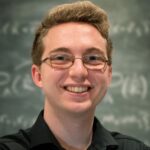
James Sunseri studies the formation of our universe, on scales ranging from stars to galaxies, using numerical simulations in tandem with higher-order statistics and morphological analysis algorithms. He graduated from the University of California, Berkeley, in 2022 with a bachelor’s in physics and astronomy, with support from Northern California Scholarship Foundations and several other scholarships. During his time at Berkeley, Sunseri led two publications and co-authored four others in both observational and theoretical astrophysics. Some of his most notable work focuses on how baryonic matter impacts the formation of large-scale structure in cosmological simulations. He will start a doctoral program in astrophysical sciences at Princeton University in fall 2023.
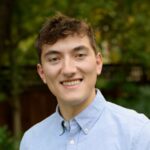
Aster Taylor is interested in exploring the composition of the dark comets in the solar system and the origins of interstellar bodies. Their research interests include the dynamics of minor bodies, including interstellar objects, plasma flows in stars and protoplanetary disks, and fluid flow in both planetary atmospheres and Earth's oceans. Taylor has already made significant contributions to research into the material properties of the interstellar object 1I/`Oumuamua, and contributed to the discovery of the dark comets in the solar system. Taylor will graduate from the University of Chicago with a bachelor's degree in astrophysics, and will begin a doctoral program in astronomy at the University of Michigan in fall 2023.
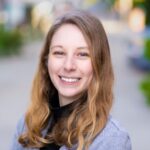
Maddie Urbanek is interested in exploring the intersections between neurodevelopment, aging and epigenetics to uncover cellular interactions that drive neurological disease. She is particularly curious about how changes at the cellular level translate to system-wide effects across neuronal networks. Urbanek received her bachelor’s degree in neuroscience from Creighton University in 2022, where she worked in Professor Jian Zuo’s lab to study mechanisms underpinning auditory disease through multifaceted approaches. Having witnessed the effects of scientific censorship, Urbanek strives to make science accessible through communication and advocacy efforts. She is a doctoral student in biomedical sciences at the University of California, San Francisco.
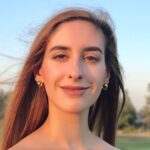
Beatriz Yankelevich is researching waveguide quantum electrodynamics with the goal of developing a modular quantum computing architecture. She also plans to develop her interests in science policy and outreach. She hopes to pursue a career in academia researching quantum computing. Yankelevich received a bachelor’s degree in engineering physics with a concentration in quantum science and engineering from Stanford University in 2021. While at Stanford, Yankelevich founded the Stanford Program for Inspiring the Next Generation of Women in Physics, a free, virtual summer program for high school age women from underrepresented backgrounds in physics. She is a doctoral student in the Engineering Quantum Systems Group at the Massachusetts Institute of Technology.
Watch this Space
Learn more about these enterprising minds capable of inventing creative solutions to real problems.
About the Hertz Foundation
Founded in 1957, the John and Fannie Hertz Foundation accelerates solutions to the world's most pressing challenges, from enhancing national security to improving human health. Through the Hertz Fellowship, the Foundation identifies the nation's most promising young innovators and disruptors in science and technology, empowering them to become the future leaders who keep our country safe and secure. Today, a community of more than 1,200 Hertz Fellows are a powerful, solution-oriented network of our nation's top scientific minds, working to address complex problems and contributing to the economic vitality of our country. More information can be found online at HertzFoundation.org.
